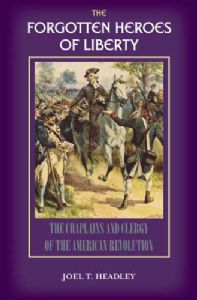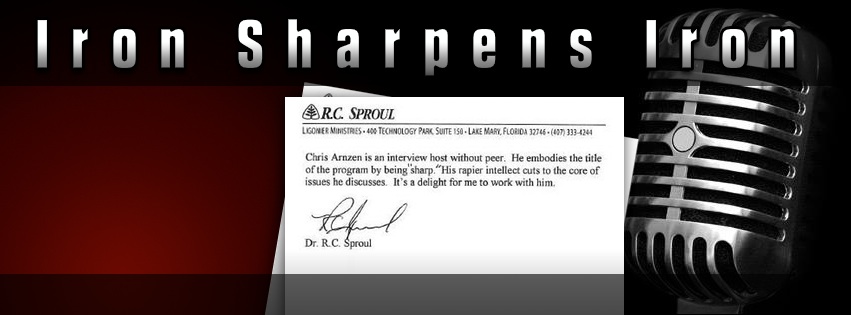




 |
|||||
 |
THE FORGOTTEN HEROES OF LIBERTY: The Chaplains and Clergy of the American Revolution
J.T. Headley![]()
This volume, written by the highly acclaimed 19th century historian Joel Tyler Headley, explores the vital, but often neglected, role of ministers of the Gospel to the cause of liberty in the founding of this great nation. ![]()
Headley (1813-1897) gives dozens and dozens of sketches of the men who were literally the spiritual leaders of the American Revolution. Men such as Timothy Dwight, William Tennent, Samuel Spring, Ezra Styles, John Gano and John Witherspoon are a few of the names that appear in this catalogue of brave and godly men who had tremendous influence on the Revolution. ![]()
In the words of John Wingate Thornton "To the Pulpit, the Puritan Pulpit, we owe the moral force which won our independence." This volume will go a long way to correct the oversight of modern day historians.![]()
This is the history that today's secular historian does not want you or your children ever to know. Here you will be introduced to men who risked their lives and gave their lives for the freedom we now enjoy.![]()
AMERICAN HERITAGE FIVE-PACK![]()
OUR LIVES, OUR FORTUNES AND OUR SACRED HONOR by Charles Goodrich![]()
A THEOLOGICAL INTERPRETATION OF AMERICAN HISTORY by Gregg Singer![]()
LET THE CANNON BLAZE AWAY: Lectures on the Centennial of American Independence by Joseph Thompson![]()
THE FORGOTTEN HEROES OF LIBERTY: The Chaplains and Clergy of the American Revolution by J.T. Headley![]()
A BRIEF EXPOSITION OF THE CONSTITUTION OF THE UNITED STATES by John Hart![]()
74S /04 ah5![]()
45% Discount![]() SGCB Price: $17.95 (list price $32.00)
SGCB Price: $17.95 (list price $32.00)![]()
Order with AMERICAN HERITAGE FIVE-PACK![]() SGCB Price: $67.50 (list price $135.00)
SGCB Price: $67.50 (list price $135.00)![]()
Additional Information
• Author's Preface
| Author's Preface |
In writing the biographies of the chaplains and clergymen who bore a prominent part in our revolutionary struggle, I have thought proper to devote a few pages at the outset to the influence of the pulpit as an institution. In New England especially, which inaugurated the rebellion, and on which fell so heavily the burden of carrying it forward, the pulpit was a recognized power in the State, and its aid formally and earnestly invoked.
It was necessary to do this to carry out the entire object I had in view, which was not merely to give a series of biographical sketches, but to exhibit the religious element--in other words, present the religious phase of the Revolution. Individual clergymen might have been devoted patriots, and rendered efficient service to their country, and yet the pulpit as such deserve no more prominent place in the struggle than the profession of law or medicine because many of its members bore a distinguished part in it. The clergy, however, wielded twofold power--as individuals and as representatives of a profession which in New England dominated the State.
In writing the biographical sketches, I have restricted myself almost exclusively to events and actions embraced by the revolutionary period. This was necessary, not only to give definiteness and unity to the work, but because full biographies of some of the distinguished chap lains would make separate volumes in themselves. Hence I have not professed to write the life of any one individ ual, but as far as I could obtain the facts, the revolutionary history of all.
The details and incidents necessary to carry out this design not being found in public documents, it will readily occur to the reader that the most serious difficulties had to be surmounted in obtaining them. I have had to rely chiefly of course on family papers and traditions, with such additional items as I could pick up in my researches among old pamphlets, letters, etc, found in antiquarian societies. I mention this to explain the absence of all references to authorities in the body of the work. To have given the multifarious sources, such as individuals, letters, pamphlets, magazines, historical collections, etc., would have burdened the work with a vast amount of useless matter. For some of the fuller sketches, such as Allen, Avery, Cotton Smith, Gallo, Champion and Ker, I have been indebted almost exclusively to the kindness of the immediate descendants of these men. In others, in part to family relatives of the chaplains, and in part to various miscellaneous sources. For many of the shorter biogra phies I am greatly indebted to Dr. Sprague's admirable work, "The American Pulpit." Without this I should not have been able to give the birth, nativity, and date of death of a large portion of those whose names will be en tirely new to the reader. Of course many who ought to be embraced in this collection are omitted, because I could not obtain the facts necessary to make a biography. In some cases the personal diaries, which would have furnished these, have been lost by the families who once had them in their possession--in others they having lived only in tradition, have passed away with time, or are so dimly remembered as to be comparatively valueless.
I have regretted especially that I could obtain nothing satisfactory respecting the Lutheran Church, which ren dered the country good service.
But notwithstanding the necessary incompleteness of the work, I feel I have done something towards giving the clergy and the pulpit the place which they ought to have in the history of the Revolution, and furnished a book which will benefit the generation now rising into manhood, by directing the mind not only to religious influences,, but to the great source of all national bless ings, as well as to battle fields and the strong legions.
This diversion of the mind from armies to the God of armies is especially needed in our present crisis. Enthusiasm and numbers will not deliver us from the troubles that now overwhelm us. Penitence and humility will go farther than either, and whether the State turns as it did in the Revolution to the Church as its strongest support or not, we may rest assured, if its prayers do not save us, whatever success we may achieve will in the end prove a sad failure.
J.T. Headley, 1861
